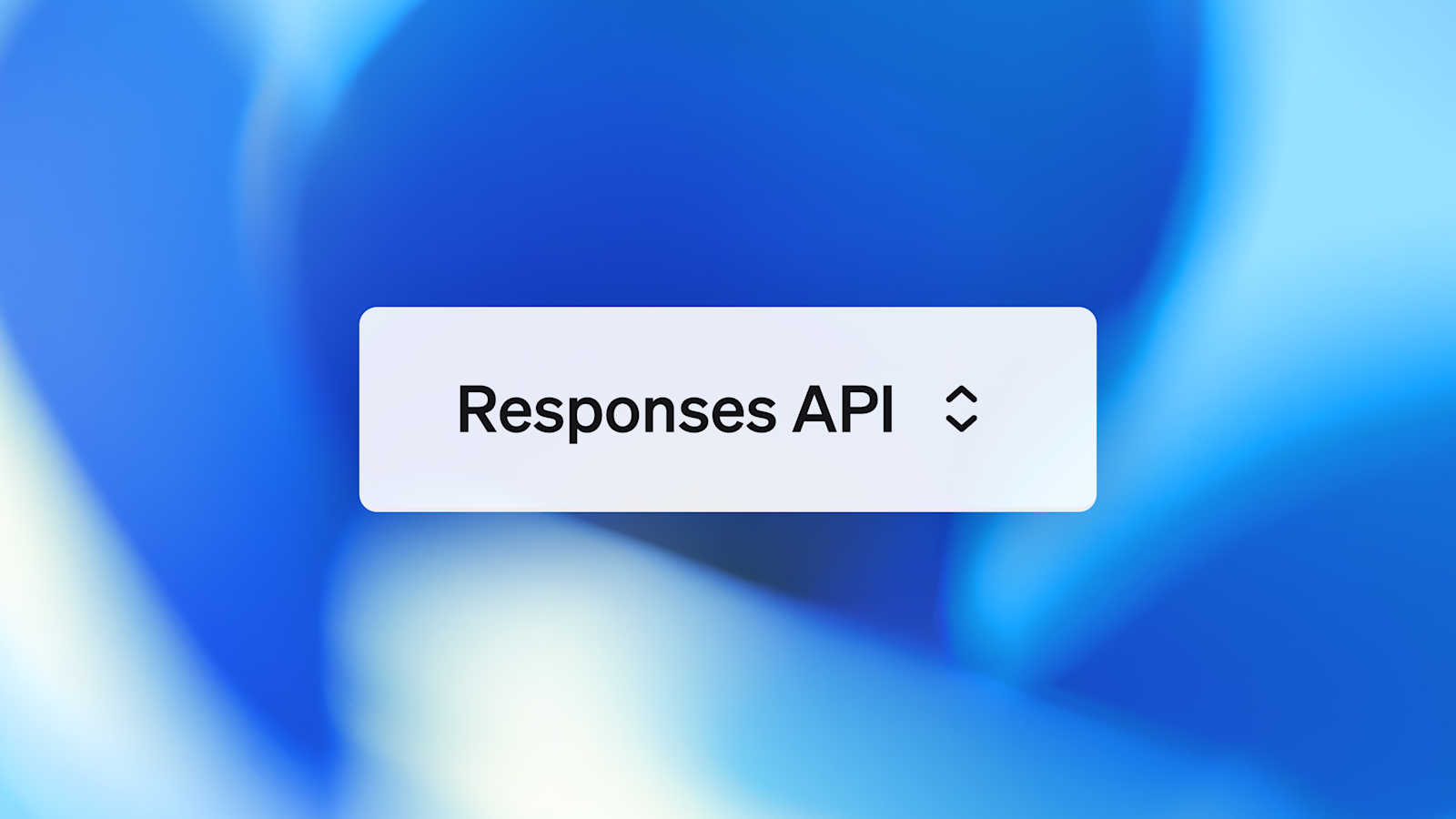Migrating from OpenAI Assistant API to Response API: A Complete Guide

⚠️ Important: Assistant API Sunset in 2026
OpenAI has announced that the Assistant API will be sunset in 2026. All developers using the Assistant API must migrate to the new Response API to ensure uninterrupted service. This guide will walk you through the complete migration process.
Why Migrate to Response API?
The Response API represents OpenAI's next-generation conversational AI infrastructure, designed specifically for GPT-5 and future models. Here's why you should migrate now:
- Exclusive Model Access: The Response API provides exclusive access to GPT-5 and o4-mini - these models are not available through the Assistant API
- Enhanced Performance: Optimized for faster response times and improved streaming capabilities
- Simplified Architecture: No more managing threads and messages separately
- Better Tool Integration: Native support for web search, code interpreter, and custom tools
- Cost Efficiency: More efficient token usage with built-in conversation management
Key Differences: Assistant API vs Response API
| Feature | Assistant API | Response API |
|---|---|---|
| Conversation Management | Threads and Messages | previous_response_id |
| API Method | openai.threads.create() | openai.responses.create() |
| File Handling | File objects with file_id | Direct file URLs |
| Streaming | Event-based streaming | Simplified streaming with deltas |
| Model Support | GPT-4 and earlier | GPT-5, o4-mini, and future models |
Migration Step-by-Step
1. Basic API Call Migration
Here's how to convert a basic Assistant API call to Response API:
Assistant API (Old):
// Create thread
const thread = await openai.threads.create();
// Add message
await openai.threads.messages.create(thread.id, {
role: "user",
content: "Hello, how can you help me today?"
});
// Run assistant
const run = await openai.threads.runs.create(thread.id, {
assistant_id: "asst_abc123"
});
// Get response
const messages = await openai.threads.messages.list(thread.id);Response API (New):
// Single API call with conversation history
const response = await openai.responses.create({
model: "gpt-5",
instructions: "You are a helpful assistant.",
input: [
{
role: "user",
content: "Hello, how can you help me today?"
}
],
previous_response_id: previousResponseId // For conversation continuity
});2. Implementing Streaming
The Response API provides a cleaner streaming interface:
const stream = await openai.responses.create({
model: "gpt-5",
instructions: systemPrompt,
input: conversationHistory,
stream: true
});
for await (const chunk of stream) {
if (chunk.choices?.[0]?.delta?.content) {
process.stdout.write(chunk.choices[0].delta.content);
}
}3. Handling File Uploads
File handling is significantly simplified in the Response API:
Assistant API (Old):
// Upload file
const file = await openai.files.create({
file: fs.createReadStream("data.pdf"),
purpose: "assistants"
});
// Attach to message
await openai.threads.messages.create(thread.id, {
role: "user",
content: "Analyze this file",
file_ids: [file.id]
});Response API (New):
// Direct URL reference
const response = await openai.responses.create({
model: "gpt-5",
input: [
{
role: "user",
content: [
{ type: "text", text: "Analyze this file" },
{
type: "input_file",
input_file: { file_url: "https://example.com/data.pdf" }
}
]
}
]
});4. Managing Conversation Context
The Response API uses previous_response_id for conversation continuity:
let previousResponseId = null;
// First message
const response1 = await openai.responses.create({
model: "gpt-5",
input: [{ role: "user", content: "What's the weather like?" }]
});
previousResponseId = response1.id;
// Follow-up message
const response2 = await openai.responses.create({
model: "gpt-5",
input: [{ role: "user", content: "What about tomorrow?" }],
previous_response_id: previousResponseId
});5. Using Tools and Functions
The Response API offers enhanced tool support:
const response = await openai.responses.create({
model: "gpt-5",
input: [{ role: "user", content: "Search for the latest AI news" }],
tools: [
{
type: "web_search_preview",
web_search_preview: {}
},
{
type: "code_interpreter",
code_interpreter: {
container: { type: "auto" }
}
}
]
});Best Practices for Migration
✅ Do's
- Test thoroughly with GPT-5 before full migration
- Implement proper error handling for the new API
- Store previous_response_id for conversation continuity
- Take advantage of native tools like web_search_preview
- Use the verbosity parameter to control response length
❌ Don'ts
- Don't try to use thread_id with Response API
- Don't upload files separately - use direct URLs
- Don't ignore the 2026 sunset deadline
- Don't assume all Assistant API features have 1:1 mappings
Common Migration Challenges
1. Container Files
When using code_interpreter, generated files are container files (cfile_*) that require special handling:
// Access container files
const fileContent = await fetch(
`https://api.openai.com/v1/containers/${containerId}/files/${fileId}/content`,
{ headers: { 'Authorization': `Bearer ${apiKey}` } }
);2. Streaming Response Format
Response API uses different event types for streaming:
// Parse streaming events
const lines = chunk.toString().split('\n');
for (const line of lines) {
if (line.startsWith('event: response.output_text.delta')) {
// Handle text delta
}
}3. Context Window Management
Unlike threads that persist context, Response API requires manual context management:
// Maintain conversation history
const conversationHistory = [];
function addToHistory(role, content) {
conversationHistory.push({ role, content });
// Trim if exceeding token limits
if (conversationHistory.length > 20) {
conversationHistory.shift();
}
}🚀 Access to Latest Models
The Response API is the only way to access OpenAI's newest models including GPT-5 and o4-mini. These powerful models offer enhanced reasoning capabilities and improved performance that aren't available through the legacy Assistant API.
💡 Pro Tip: Use CalStudio for Easy Migration
Skip the complex migration process and build your GPT-5 and o4-mini assistants with CalStudio's no-code platform. We handle all the Response API integration for you!
Build Your GPT-5 & o4-mini Assistant Today
Create, customize, and deploy your own GPT-5 or o4-mini powered assistant in minutes with CalStudio - no coding required!
Conclusion
Migrating from Assistant API to Response API is essential for continued access to OpenAI's latest models and features. While the migration requires some code changes, the benefits of GPT-5 access, improved performance, and simplified architecture make it worthwhile.
Remember, the Assistant API will sunset in 2026, so start your migration planning now. Whether you choose to migrate your code directly or use a platform like CalStudio, ensure your AI applications are ready for the future.